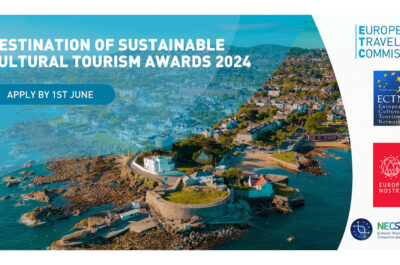Year-to-date growth in all reporting destinations was up 3.4% on a weighted average basis, although significantly slower than in the previous two years.
BRUSSELS – According to the European Travel Commission's (ETC) latest quarterly report "European Tourism – Trends & Prospects” for Q3 2019, European tourism demand remains in positive territory, albeit with a slower expansion rate compared to the last two years. Although external risks are failing to dissipate, destinations continue to grow at a modest pace and the overarching regional outlook remains positive (3-4% in international tourist arrivals in 2019).
Of particular interest in Q3 is that Montenegro maintained growth momentum at 18% as it welcomed a soaring influx of Western European holidaymakers, while the depreciation of the lira continued to play a vital role in Turkey’s tourism performance with an equally impressive 15% increase in tourist arrivals. On the contrary, in Iceland (-14%), the strong krona and the collapse of Wow Air are among the key factors which have contributed to declining arrival numbers as the destination is expected to record a downturn in 2019 for the first time since 2010. Industry experts are now hoping to return to normal growth levels (4-5% annually) and that this slowdown will allow for a more sustainable and inclusive tourism sector in Iceland.
According to ETC, while things appear stable in the European tourism sector amid external challenges, uncertainties and the poor shape of the global economy, the greatest risk lies in not seizing the opportunities at hand by encouraging more sustainable and inclusive tourism approaches. Speaking following the launch of the report, Eduardo Santander, ETC Executive Director said: "this latest report highlights that travel demand in Europe is in a good place, with steady increases in tourism numbers across the board. Despite very real challenges, such as the looming threat of a ‘no deal’ Brexit, and the collapse of several airlines, European destinations continue to post healthy rates of arrivals, which of course is to be welcomed. Meanwhile, European tourism needs to focus on developing long-term sustainable management solutions to enable tourism to flourish, rather than just merely grow.”
American and Chinese tourists continue to flock to Europe
While intra-regional demand plays a key role in increasing tourist numbers in Europe, large long-haul source markets continue to make a significant contribution, particularly from the US with the dollar up against many other currencies. The Q3 report illustrates that several European destinations are witnessing increased arrivals from the US with significant interest in South-Eastern Europe (Turkey (+32%), Greece (+21%), and Cyprus (+27%)). As for the Chinese appetite for European destinations, a strong demand remains amid a relative decline in the economy with virtually all reporting destinations seeing an upsurge in Chinese arrivals or overnights (or both).
Air passenger growth slowing in Europe
Reflecting a general slowdown in the global economy, the report notes that average increase in global revenue passenger kilometres (RPKs), which is an indicator of airline demand, was 4.1 %, over the past three months, well below the average rate of expansion over the past 10 years of 6.1%. As for year-to-date air passenger growth, it has slowed more rapidly in Europe than any other region, falling from 6.9% based on data to April to 5.4% based on data to August.
Importantly though, load factors in Europe have been growing steadily for several years despite some very robust capacity growth. This has slowed in recent months, and the collapse of both Thomas Cook and Adria Airways in September will put further upward pressure on load factors in the near term. However, it is expected that any capacity lost through their collapse will return later in 2019 with other airlines filling the void in due course which should facilitate continued increase in arrivals to Europe.
‘No Deal’ Brexit likely to have permanent effect on UK travel volumes
The latest quarterly report includes a special feature that analyses the impact of a ‘no deal’ Brexit on travel and tourism in Europe. According to the report, the combined effect of the economic and non-economic factors associated with a ‘no deal’ Brexit would cause a 7% drop in UK outbound trips in 2020 and an 8% drop in 2021, relative to baseline projections. More significantly, the report states that a ‘no deal’ Brexit would have a permanent downward effect on UK outbound travel volumes, which is sure to cause concern amongst many destinations across Europe.
The impacts of this reduced UK outbound travel will not, however, be experienced uniformly across European destinations. Spain is likely to be the most heavily impacted per traveller volumes with an estimated 1.3 million fewer UK arrivals to the country in 2021 relative to baseline projects, and Ireland the most impacted in percentage terms (-5%) in 2021.
Tatiana is the news coordinator for TravelDailyNews Media Network (traveldailynews.gr, traveldailynews.com and traveldailynews.asia). Her role includes monitoring the hundreds of news sources of TravelDailyNews Media Network and skimming the most important according to our strategy.
She holds a Bachelor's degree in Communication & Mass Media from Panteion University of Political & Social Studies of Athens and she has been editor and editor-in-chief in various economic magazines and newspapers.
































































































































































































